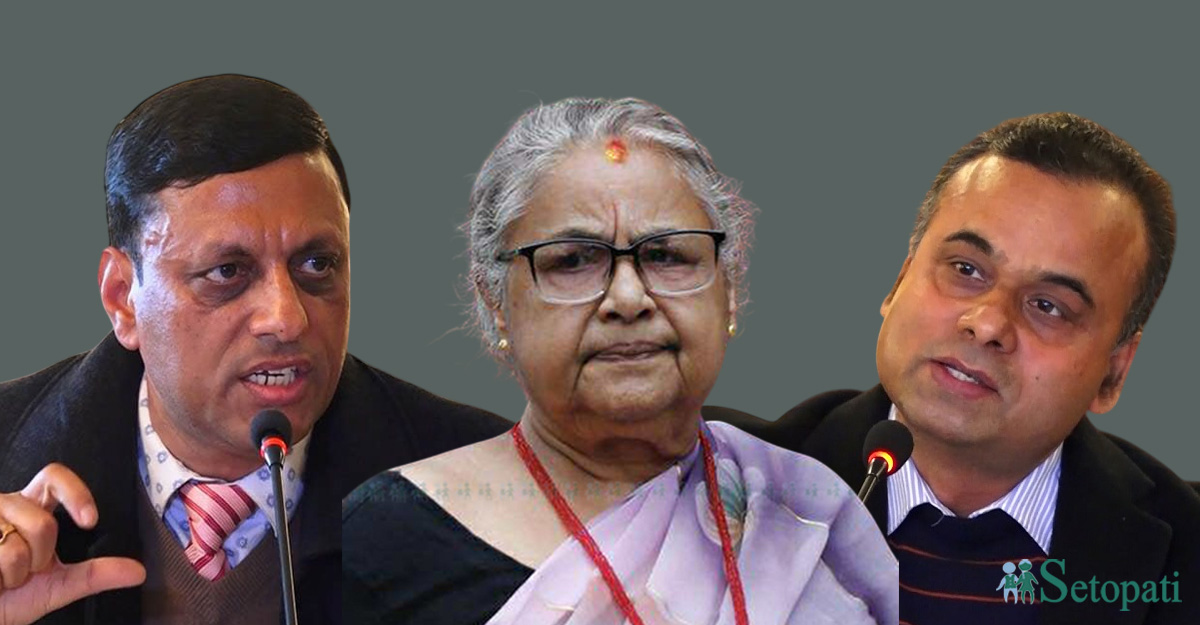Constitutional expert Tikaram Bhattarai has said that the ordinance being introduced to suspend the requirement of parliamentary hearings for constitutional appointments during the dissolution of the House of Representatives is unconstitutional for three reasons.
After interim Prime Minister Sushila Karki recommended the ordinance to the president for issuance, we asked constitutional expert Bhattarai whether it was constitutional.
Article 292 of the Constitution mandates parliamentary hearings for constitutional appointments in accordance with federal law. When asked whether an ordinance could be issued in contradiction to this constitutional provision during the dissolution of the House of Representatives, Bhattarai said, “This ordinance is unconstitutional for three reasons.”
According to him, the three reasons are as follows:
First, the government is attempting, through an ordinance, to reduce the quorum required for making constitutional appointments. Amending a constitutionally mandated quorum through an ordinance is equivalent to amending the Constitution itself, which is not permissible.
Second, the Constitution makes parliamentary hearings mandatory for constitutional appointments. The Constitution itself prohibits taking oath and assuming office or performing duties without such hearings. Therefore, the ordinance the government is attempting to bring is against the parliamentary system, constitutionalism, the rule of law, and constitutional supremacy.
Third, this interim government, formed solely to conduct elections, has no mandate to introduce legislation with long-term implications. It is not a regular party government; it is a government formed to hold elections. Therefore, except for removing obstacles to holding elections, it has no authority to bring ordinances with far-reaching consequences.
“There are already two or three officials in the Election Commission; it has not become vacant. The current officials can conduct the elections. The CIAA is not about to become vacant, either. In such circumstances, there is no need to bring an ordinance that conflicts with the Constitution,” Bhattarai said. “This ordinance is against parliamentary tradition, parliamentary supremacy, and the rule of law.”
“This interim government led by former chief justice Sushila Karki, who understands the Constitution well, includes Home Minister Om Prakash Aryal, known for opposing unconstitutional actions. It has Law Minister Anil Sinha, who is known for interpreting the Constitution correctly. It is unfortunate that such an unconstitutional step is being taken at a time when three people who have always stood for constitutionalism and the rule of law are in government,” he added.
Bhattarai said that since the president had returned even a bill passed by a regular Parliament in the past citing insufficient quorum, he should reject this ordinance as well.
Bhattarai also recalled the precedent where the Supreme Court’s Constitutional Bench had blocked, through an interim order, the ordinance brought by then-prime minister KP Sharma Oli to amend the Citizenship Act after dissolving the House of Representatives.
“Therefore, if a case is filed against this ordinance, it could be stopped by the court,” he said.
Another constitutional expert, Bhimarjun Acharya, also said that the attempt to bring an ordinance that contradicts the Constitution is “objectionable.”
“Ordinances are brought to remove obstacles when no law exists. But in recent times, there has been a trend of altering laws through ordinances,” Acharya said. “On top of that, bringing an ordinance that effectively amends constitutional provisions will have bad consequences.”
He added that there is no need to bring an ordinance for such appointments in the first place.
According to Acharya, the House of Representatives Regulations state that if a hearing is not conducted within 45 days, the appointment is automatically confirmed. The government can proceed with appointments based on this provision, there is no need to tamper with the Constitution by bringing an ordinance, Acharya says.
According to sources at the Office of the Prime Minister and Council of Ministers, the ordinance stipulates that hearings will not be conducted while the House of Representatives remains dissolved, and that the House of Representatives to be formed after elections must conduct hearings within 45 days.
“If the Council recommends an official for a constitutional position during the dissolution of the House, their shall be no obstruction to the appointment of such an official even before the parliamentary hearing,” the ordinance reads.
According to the ordinance, if the parliamentary hearing committee does not approve the appointee within 45 days of the formation of the House of Representatives, the individual will automatically be relieved of their position.
The Constitution of Nepal requires parliamentary hearings before the appointments of the chief justice, Supreme Court justices, heads and members of constitutional bodies, ambassadors, and members of the Judicial Council.

